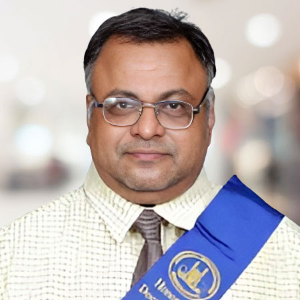Title : Importance of Environmental Impact Assessment (EIA) process for agricultural and horticultural projects, plans, programs, policies and legislative actions towards sustainable development
Abstract:
In this article environmental impact assessment (EIA) process for agricultural and horticultural projects, plans, programs, policies, legislative actions towards sustainable development with field EIA reports. The entrepreneurship development through green economic model for sustainable entrepreneurship is designed and developed for efficient and effective solid and hazardous waste management prior to environmental impact assessment (EIA) process conducted for two modern rice processing mills (Figures 1 and 2) . The Resource Conservation and Recovery (RCRs) and EIAs are designed and developed to protect the environment during the post COVID-19 World. Strategic environmental assessment (SEA) process can be broadly defined as a study of the impacts of a proposed project, plan, project, policy or legislative action on the environment and sustainability. The root cause problem solution for ozone layer depletion potential (OLP) impact, global warming potential (GWP) impact and green house synergic (augmentative) gas (GHG) emission impacts of 57 Giga tons of Carbon dioxide equivalent in context to generic, source specific and industrial specific plants are measured, monitored and mitigated by international environmental impact assessment process for the sustainable environmental climate change and control. In this research, SEA process has been aimed in order to incorporate environmental and sustainability factors in to agricultural and horticultural project planning and decision making (PPDM) process such as project formulation and appraisal that included policies, programs, plans and legislative actions. Sustainable entrepreneurial agricultural and horticultural development is a kind of development that meets the needs of the present without compromising the ability and efficacy of future generations to meet their own needs. Environmental Impact Assessment (EIA) process can be defined as the systematic study and check of the potential impacts (effects) of proposed projects, plans, programs, policies or legislative actions relative to the physical-chemical, biological, bio-physical, radio-active and cultural, and socioeconomic components of the total environment. The primary purpose of the EIA process is to encourage the consideration of the environment in organizational project planning and decision-making process and to arrive at actions that are environmentally compatible. PPDM process should include the integrated consideration of technical or engineering, economic, environmental, safety, and health, social and sustainability factors to achieve business excellence. The objective of the study is to conceptualize and develop SEA process for the climate change and environmental pollution control and a course module is developed entitled “BIPARD training and research course module-8” on environmental pollution, climate change, afforestation and global warming control. The design of the study is cross sectional. Environmental Health Impact Assessment (EHIA) process has been conducted for a generic nuclear power plant to consider the environmental quality, safety and health impacts to mitigate psychological health effects on workers and nearby residents. Social Impact Assessment (SIA) process can be defined as the systematic identification and evaluation of the potential social impacts (effects) of proposed projects, plans, programs, or legislative actions such that social consideration is encouraged in process and to arrive at actions that are socially compatible with reference to a sustainable sanitation project. SEA process concerns to environment and sustainability effects in process and arrive at proposed projects, plans, programs, and legislative actions that are compatible with respect to environment and sustainability issues.



